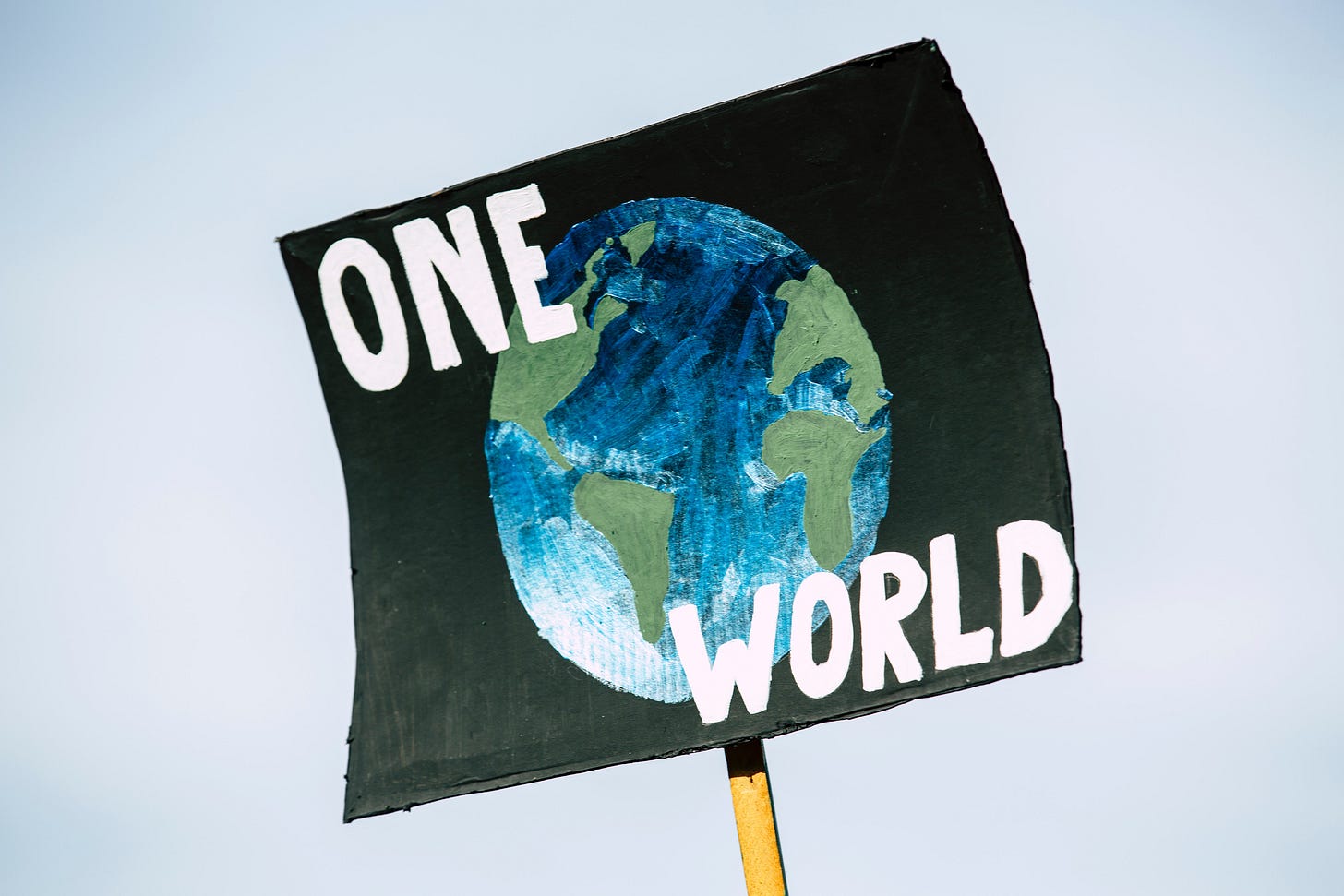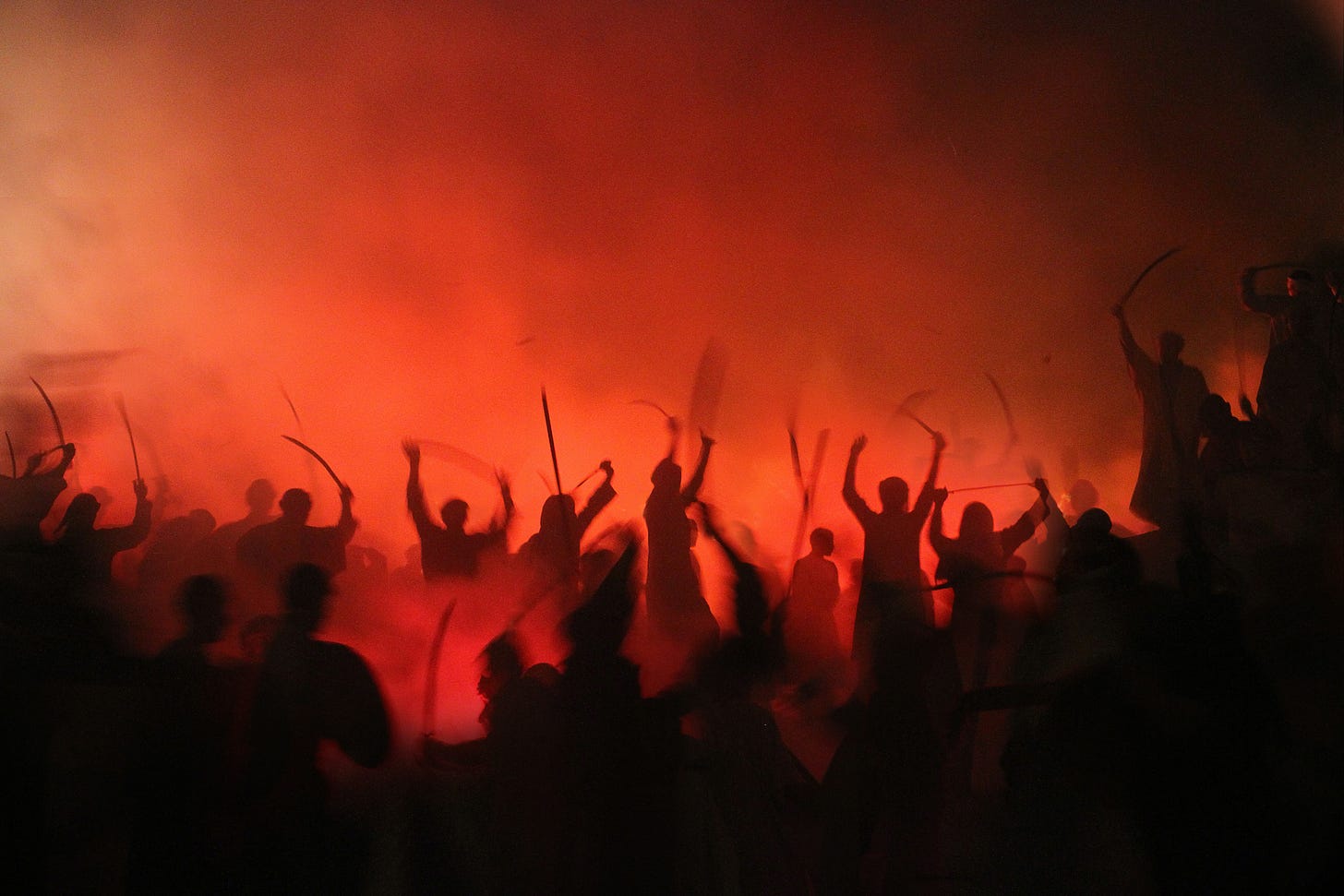
We know there's not going to be a final outcome.
We're not trying to get to the end.
We're not trying to figure out how to get to the final solution.
We need to start thinking about how we want to be in that dynamic conversation about living in a complex world. Usually, I talk about the merits of conflict transformation, dialogue tools, and all the amazing resources we have for solving existing problems. But today, I'm going to introduce you to a concept called Game B. I found out about this last year, and it's really blown my mind and revolutionized the way I think about the world and society.
So, let me tell you about it. The concept comes from Jim Rutt and Jordan Hall and a conversation they had well over a decade ago. There's a whole community around it with loads of people talking about Game B.
I really want to recommend you check out gamebfilm.org. It's a cleverly done, relatively short film that introduces Game B in a fun way.
I would love to hear your comments and thoughts about it if you watch it. And they would love to hear your comments about it.
So, what are we talking about here? What is Game B?
Now, we can call our current civilization and its rules Game A. These are the rules you know; it's pretty much the way we've been operating in society for the last 10,000 years or so. It's basically what we need if we're going to live in groups, bands, or tribes of more than a hundred people.

Game A is trying to answer questions like: How do we do resource production? How do we keep people in line inside of our society? How do we compete with all those other groups trying to figure out how to produce resources and take care of their own?
Game A focuses on scarcity, which leads to rivalrous dynamics or win-lose dynamics. If you've listened to me at all, you know I have a bug about that. It's trying to figure out how we increase our resource production. How do we divide all those resources? How do we compete against those other folks?
This set of rules and the world it's creating will drive humanity right off a cliff. We have gotten really good at technology and competing. We're going to suck up all the planet's resources and destroy it and ourselves if we don't figure out how to change the rules of the game.
That's why Game B is coming up with a whole new set of rules. A lot is going on in Game B, but I'll say a couple of things. Game B is an infinite game. The purpose is to figure out how to keep playing and how to set up a game that people want to keep playing. There’s a wiki that delves into Game B, and it’s worth checking it out.
Let’s look at the differences between the two:
What are the elements of Game A?
We have finite resources, and everyone's trying to win.
There's the illusion that we're going to find a solution.
We have a win-lose system focused on selfish growth.
Single ownership, no resource sharing
Imposed governance, a representative who tells everyone what to do and decides for them
Solving problems after they happen
What are the elements of Game B?
This is the omni-win civilization that we want to get to: It's the flag on the hill.
It's thinking about changing the rules for ongoing relationships.
A win-win system, omni-win structures focused on evolving homeostasis
Optimizing shared access to resources and fair distribution
Emergent self-governance, using a process to figure out everyone's needs
Preventing issues before they arise

With Game B, instead of focusing on conflicting values, we can focus on being part of a complex holarchy of values and making decisions from there. Instead of getting stuck between whether we live in an empire or anarchy, Game B would be asking how do we consciously self-regulate?
A question that I always love is, how can people be involved in the solutions that impact their lives? Our criminal justice system, which is really punitive right now, could actually focus on protecting people, rehabilitating them, and restoring our communities.
Game B would focus on preventing issues. How do we anticipate things? How do we make sure that we're taking care of the challenges that will keep coming?
It'd also be shifting from a centralized infrastructure to decentralization. A big problem of civilization is that we keep on centralizing power. People don't like that anymore. It's also really not working. So how can we decentralize and distribute decision-making?
Instead of being in this depleting extraction infrastructure and economy, what would it be like for us to create a regenerative economy?
I want to say that the Omni-Win Project, and its name, comes from the world of Game B. We want to figure out a game that maximizes human civilization so we can all prosper, flourish, and thrive in the future. Game A doesn’t set us up for that.
I know some of this is intense. Don't worry, I’ll dig more into the intensity next week. After that, I have many ideas for making this better.
There's a lot more to go into here, and I definitely encourage you to start poking around in some of this Game B stuff. I'm all about helping us transition into Game B. I'm inspired to connect all of the amazing people that are coming up with omni-win capacity, skills, and tools with these folk who are thinking about what we can do with them.
We need to look at this on all levels. It's going to be coming on a personal level. We need to talk about how we relate to each other. We need to talk about how our society and systems are working. We also need to think about our culture. All of that has to be coming soon.
And again, check out gamebfilm.org. It's a really good little intro, and if you want to get more involved, there's a Game B community at Mighty Networks.
Here’s an initiation to Game B.
And here’s A Journey to Game B by co-creator Jim Rutt
I’d love to hear what you think about Game B in the comments.
Here’s the video that inspired this essay:
You can find more information about the work I do in conflict transformation on my website: http://www.omni-win.com
You can schedule a call with me here: https://calendly.com/duncanautrey
Don’t forget to check out the rest of my posts as I discuss how we can work together to ensure we all win.
If you’d like to see more of these weekly round-up posts, subscribe to Omni-Win Visions here on Substack:
It would also be great if you could subscribe to my YouTube channel where you can see more of my long-form content, authentic discussions, and weekly content:

